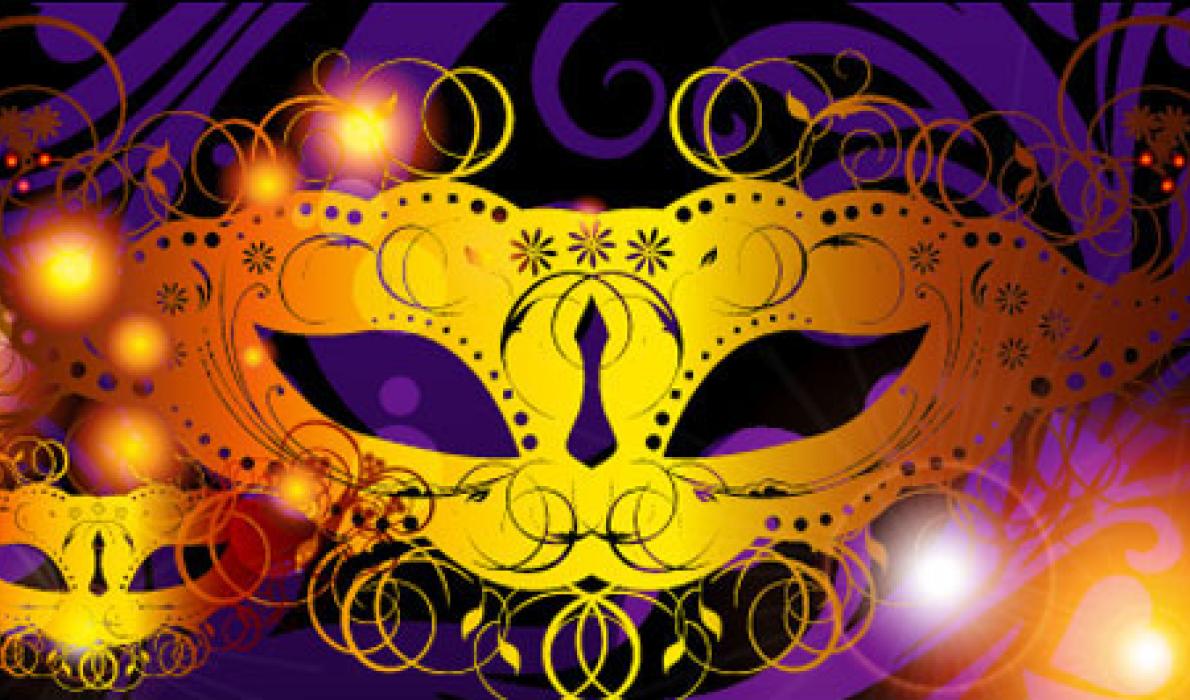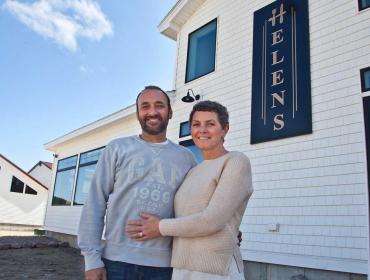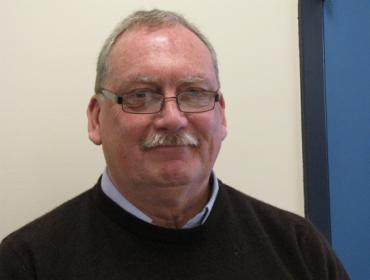Posted April 26, 2016
Last modified April 26, 2016
My daughter Penrose and I were sitting at our kitchen island, covered in finger paint, when I heard scratching sounds coming from our front yard. I left her with her latest masterpiece, “Baby Owl,” and peeked out the front door to see our neighbor (well, he lives a few miles down the road, but that’s neighbor enough on the island) shoveling the walkway.
It was March, and after a few mild days we were getting slammed with a little blizzard. My husband left on the first boat that morning for a nine-day trip to mourn his grandmother in San Diego, hopping on the bus to Logan Airport rather than flying out of Owls Head in the high winds. Penrose and I had already been out shoveling once, and had rewarded ourselves with popcorn and the 80-billionth viewing of My Neighbor Totoro since I introduced her to it, but a few more inches had accumulated since the morning.
I watched my neighbor scrape the porch and walkway, and then shovel around my car. The driveway hadn’t yet been plowed. He got in his pickup truck and left without knocking on the door. I realized I had received a real mitzvah.
Mitzvah is a Hebrew word which, in its common usage, means a good deed or charitable act. These acts are intended to be their own reward, and are often performed without recognition. They forge connections, between a person and his or her faith, if that’s the context in which they are performed, or between the giver and receiver of the mitzvah.
I had been feeling disconnected that morning. I was facing nine days of solo parenting, and had to cancel a presentation I was excited to give at the Maine Conference for English Language Arts. I had no family in the area to help lighten the load. I was saddened by the loss of my grandmother-in-law, and wished I could be with my husband’s family to celebrate her life.
School was canceled that day because of the snow, and although I was enjoying my day at home with Penrose, the intense closeness of a day without contact with the outside world was wearing thin.
The connecting act of the small mitzvah, ten minutes of shoveling, relieved some of those feelings. I realized it would soon be Purim and resolved to perform some mitzvot of my own.
Purim isn’t a holiday I always recognize. When I am organized enough, I make hamantaschen, triangular cookies with some sort of filling (poppyseed is my favorite). Last year I even brought some to work to share. But this year I wanted to fulfill the mitzvah of mishloach manot, which is the reverse-Halloween tradition of bringing goodies to friends and neighbors.
On Wednesday night, I had friends over to eat take-out lasagna from the preschool fundraiser and make trays of triangle cookies. I mixed and rolled out dough and punched out circles, and they filled them with poppyseed paste and folded the sides over to make the iconic triangle, pinching and pressing to make sure the filling wouldn’t spill out in the oven. We ate several that night. I packed up two bags of cookies for mishloach manot, one for my neighbor, and one for Penrose’s preschool class.
I sent a message to her teachers, asking if it would be OK to bring some hamantaschen in. They responded enthusiastically, and started researching Purim. That afternoon, I received a wonderful surprise—pictures of my daughter’s class, wearing crowns and costumes and parading around the room to a children’s tune about Purim!
Sharing the story of Purim is regarded as a mitzvah in its own right, and I was grateful to Penrose’s teachers for being so inclusive and helping to share and normalize Jewish culture in her classroom. I’m pretty certain that it was the first Purim parade on North Haven.
That afternoon, Penrose and I stopped by my neighbor’s house to drop off his mishloach manot, really just some cookies in a plastic bag. I drew a picture of a snowflake and a shovel on the bag, in case he wasn’t home when I dropped them off. He was, and we chatted for a few minutes. I thanked him profusely for shoveling, and he waved off his good deed. He knew I was going it alone, and didn’t want to bother me in case I was in the middle of something with my daughter.
On North Haven, the geographic disconnect we live with can engender feelings of disconnect with the world. But my neighbor’s mitzvah started a chain reaction of connection that reached from person to person and culture to culture, and gave me the energy to get through a challenging time.
Courtney Naliboff lives, teaches and writes on North Haven.
Contributed by




